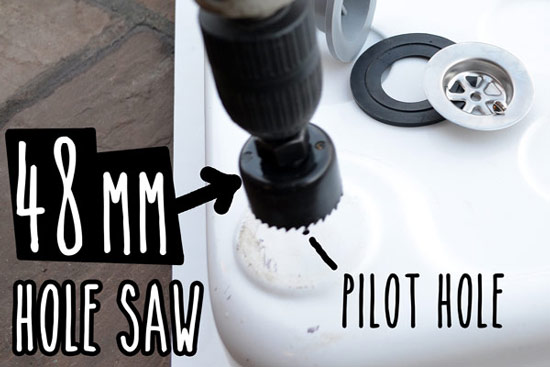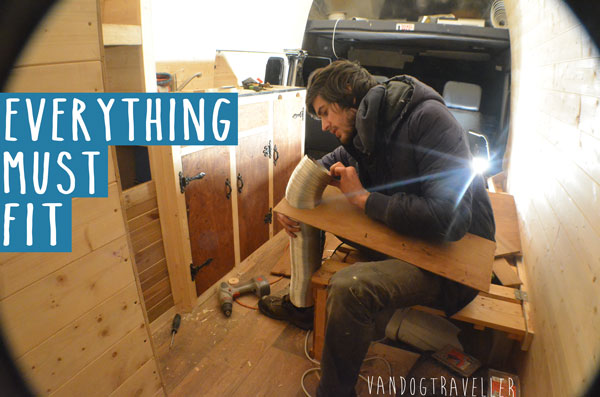Vans break and they leak oil. It’s a thing that happens.
My van was leaking oil from the rear differential. It has been getting worse for over a year.
I’ve had a frustrating past few weeks trying to fix my van. This post goes over how I fixed a worn pinion flange (leaking oil) on my van. If you have a van this is worth knowing about.
The problem
Gear oil gets splattered everywhere underneath the van around the rear axle and I’m losing noticeable amounts of oil from the rear differential.
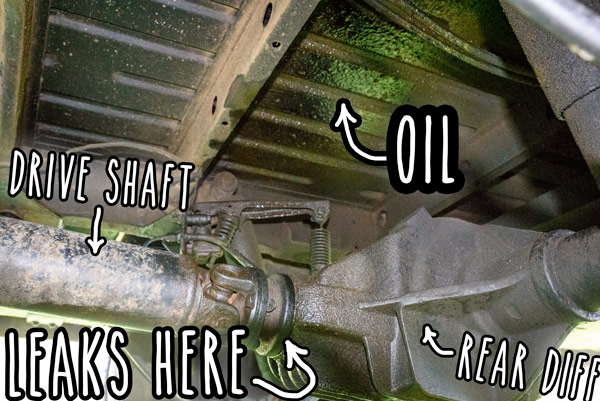
The drive flange is worn
An oil seal runs round the drive flange (where the drive shaft goes into the rear differential). When the flange is worn the seal is not so good and it leaks.
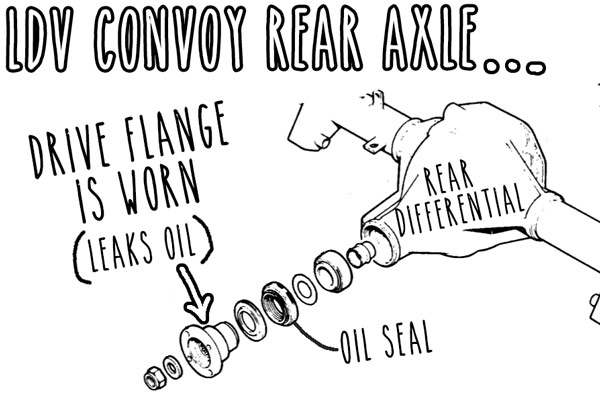
You can’t get parts for this rear axle
LDV who made my van (and who went bust over 10 years ago) used a external company to make the rear axle on this van. But that company went bust as well so they got another company to do it, who probably also went bust. Something like that. Basically, new parts do not exist and old parts are very tricky to get hold of.
I finally found a second hand replacement
It came from the Czech Republic and took 2 weeks to come. It cost £90 and in ‘mint condition’
But that part was also very worn and was unusable
Even just a small score mark is enough to make this leak

So I got it repaired
I paid £87 to get it fixed. They put a metal sleeve over the top to give a level surface for the oil seal to run round. But they didn’t do a very good job. They did a quick fix and made the diameter too large. The diameter of this flange is critical – slightly too small and the seal will leak and slightly too big and the seal will heat up and melt because of excess friction. They over charged me for a job that wasn’t done well at all.
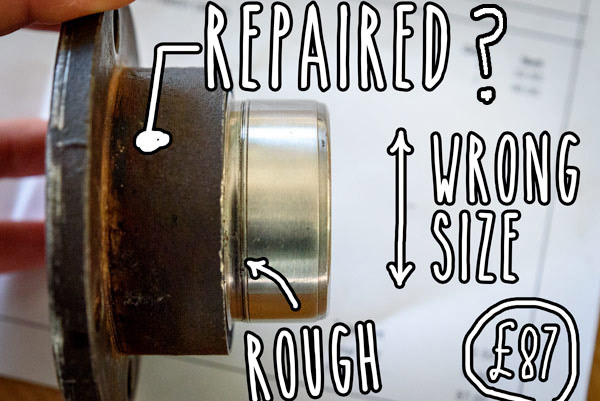
But it was the wrong part anyway
Even if this spare part was repaired well it wouldn’t fit. The splines were completely different. I only found that out after the drive shaft was taken off.

So I took the old part off the actual van and got that fixed
I took it to a different company this time (W&K Precision Engineers in East Yorkshire). The guy did a great job…
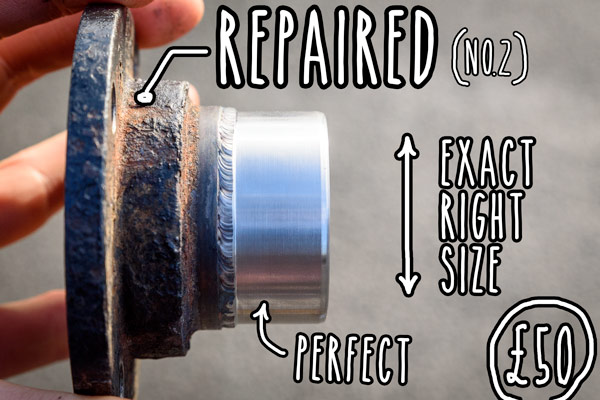
He used EN24T grade steel – the hardest they have
This is commonly used for high tensile parts like gears and shafts where a high resistance to wear is needed. Hopefully it’ll last a few years. The sleeve is 1.5mm thick, just about the thinnest he could go.

W&K Precision Engineers. They win.
This guy listened carefully to the problem. There was no rush and he took his time to think about the best way to do it and discussed it with me. This is a high torque part so we agreed to make the sleeve as thin as possible to maintain the original strength as much as possible. AND he did it for the very next day.

4 lessons I learnt from this:
- When ordering parts off the internet double check it’s a direct replacement. I could have sent a photograph to the seller if I had removed the old part to check it’s the same. The part you’re replacing could have already been replaced and modified, and therefore different to the original.
- ‘Mint condition’ means different things to different people. Get photographs from the seller and see the thing for yourself before buying used parts. In this case, mint condition meant worn out.
- When getting something fixed, talk to the actual guy who is going to do the job – I mean the guy behind the machine and not the guy behind the till. That could minimise any misunderstanding – as with the first repair.
- You can tell when someone cares about what they do. They smile. Take the broken part to the guy who smiles!
What do you reckon? have we got any mechanics or metal experts? How long will this repair last?
What else have I been up to? I fitted a broken Propex heater: Heating my van (the proper way). Here’s how I installed a Propex heater



